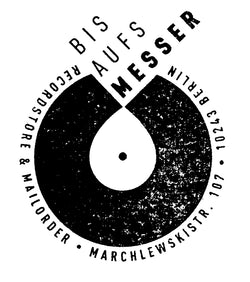The hommel has all but disappeared from the collective memory of Flanders. If it is seen outside of a display case, it is usually being played in a static way, denied the right to evolve & find a more contemporary voice. It has thus been replaced in the hearts of most Belgians by acoustic guitars & the more well known Appalachian dulcimer, which strangely enough is a descendent of this instrument: the grandparent is lost, the grandchild is celebrated. The first hommel I saw was years ago at the Volksinstrumentenmuseum in Gooik. Curious to how it would sound, I suggested to my father that we make one. A seasoned woodworker, he was up to the challenge & so we began... The sides & top are made from Douglas Fir recovered from an old bookshelf. The headstock block (schroevenstuck) is maple. The end block (staartstuck) is a piece of Oregon myrtlewood & the fretboard... I have to say I don't remember. We cut & sanded the wood, sawed the guides for the frets & set them in, created the bridge & nut out of ersatz granite, found some tuners from an old guitar & assembled the pieces together. Is is not the most elaborate example of a hommel, but, with the relationship I have forged with it over time, it's a beauty to me.
I do not play in a traditional way: I pluck, fingerpick, tap & bow amplified flat wound electric guitar strings. I change the notes with my fingers, metal sticks, bottlenecks steel tubes & the hard stick with a wooden handle, which has a special name : the vlier, which is a more local, Flemish Brabant, name of the instrument itself. I play in a tuning to be in harmony with the tin whistles you hear from time to time & occasionally play shakers I made by hand from branches, wire & bottle caps. The songs in this collection are not traditional either, they are inspired by cycling around Flanders & the landscape that surrounds my home in Niemandaal, a small village in the Pajottenland of Flanders, not far from the capital city, but isolated enough to not hear the constant hum of the highways. It's a nice place to relax, filled with what I would call elegant micro-landscapes: simple combinations of fields, grass, streams, small farms, rolling hills... Sometimes called the "Tuscany of the North", wine is replaced by lambik, a naturally fermented sour beer & it is well-known as being the place where Pieter Bruegel the Elder would set up his easel.
Until I was 40, I only played at home. Thanks to my friends at Herberg Rustiek, who released some tapes & encouraged me to play outside. I made my first public concert on top of an old slag heap near Liège. Since then, I have been invited to play a few concerts in Belgium, Germany, Sweden, Portugal, France & Japan. Thanks to Okraïna, you now have this record in your hands. I chose to keep the recordings quite raw in the hope that the natural reverb & warmth of your listening space can evoke the music's spirit & that you will have the impression I am playing next to you in the same room. I highly recommend listening through speakers rather than headphones.
If you would like to learn more about the hommel, I strongly suggest tracking down the out of print "De Hommel in de Lage Landen" written by Herbert Boone in the mid 1970's, coming to one of my concerts, or if you happen to be walking around Niemandaal & notice a warm light coming from my living room: knock. I just may invite you in to share a gueuze & play a few tunes."
(Linus Vandewolken)

